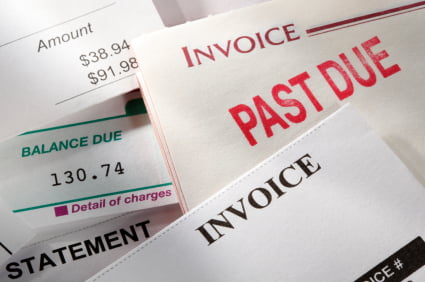If a bill collector has started to contact you about an outstanding debt and is using some intimidation tactics to get you to pay up fast, you need to be very careful about what you say to them and when you actually make a payment.
In some cases, you could be relieved from the debt entirely under your state’s Statute of Limitations.
If you do end up negotiating with the collector and come up with an agreement, you must gather some proof of your communication and get everything in writing.
Under the Fair Debt Collection Practices Act (FDCPA), you have the right to ask your debt collector to verify your debt and can assert your rights.
Here’s what you need to get from a bill collector before you make a single payment:
Send a debt verification letter. This letter is also known as a “debt validation” letter, and you have the right to send one of these under Section 809 of the FDCPA. This letter asks your debt collector to provide proof of your debt, and also informs them that you are serious about getting this debt paid off if you do indeed still owe it.
Ask for proof that the debt collection company owns this debt and has been assigned to collect it. You will need to include this request in your debt verification letter.
Request a copy of the original signed loan agreement or credit application. This is basically asking the debt collector to prove that you owe a debt to XYZ company, because they are asserting a claim that you owe someone money and you need to enforce your rights under the law.
Ask for a complete payment history. This information needs to include all payments made, starting with the original creditor.
Request an explanation of how interest was calculated on the debt. You can ask the debt collector to send you a copy of the original loan agreement where you agreed to pay XYZ amount, and also explain how they calculated what they say you owe them in terms of the principal plus interest.
Ask them to prove that the State of Limitations has not expired on this account. If your State’s Statute of Limitations that applies to this debt has expired, you are legally no longer obligated to pay this debt.
Ask for license information. Verify that the debt collector is licensed to collect on your debt in this state. You can ask them to send you their license number and the name of the registered agent, then verify this information with the Better Business Bureau.
Your debt verification letter needs to be sent within 30 days of being contacted by the debt collector. The debt collector than has just five days to follow up with you, and they must give you all of the items requested above.
If and when you are satisfied with the response, you will need to draft an agreement and have the debt collector you are communicating with, and their supervisor, sign the agreement and send it back to you before you send payment. Make sure you send this by certified mail and request a return receipt.
Get everything in writing so that you have proof that this agreement and negotiation took place, and get a formal confirmation from the debt collection agency that your credit report will be updated and accounts posted as “current” or “paid in full”.
This may seem like a lot of extra steps, but it’s very important that you have enough proof that you do owe a certain amount and have proof of any negotiations and agreements made between you and the collection agency.








